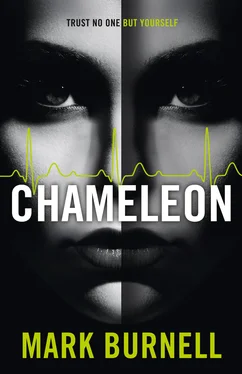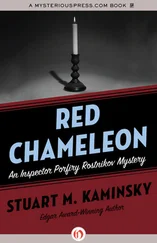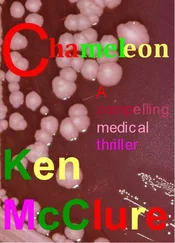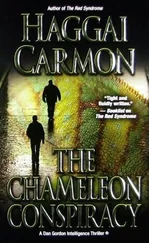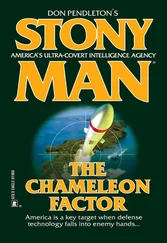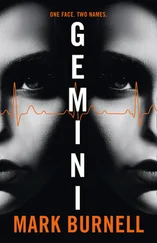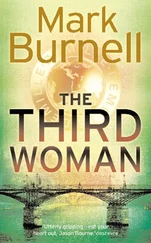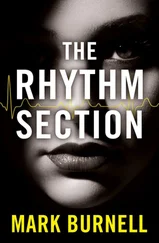‘ Okay? ’
He winced. ‘Sorry. I didn’t mean it to sound like that.’
‘What did you mean it to sound like? Compassion? Comprehension?’
‘Look, I’m trying to help here …’
‘Let me tell you about Salman Rifat. He’s an arms dealer. A charmer. A monster. And he has his pleasures.’ She hesitated, then looked at her feet. ‘His favourite thing was to make me strip for him, usually in a living room, never in a bedroom. While I stripped, he’d tell me to do things and I’d do them. But the end was always the same. He has this estate in Greece. It produces olive oil. And wherever he is in the world, he has these small bottles of home-made olive oil with him. Dark blue glass, a miniature cork in the top. What he liked to do most was to make me bend over something – the back of a sofa, a table – and he’d pour a little of this oil onto the centre of my spine. He liked to watch it run over skin. That was his thing. He’d tell me to move this way or that. And the more turned on he became, the more aggressive he became. Finally, when the oil ran over my backside, he’d fuck me. One way or the other.’
She looked up. Palmer was staring at her and appeared to have stopped breathing.
‘So when you ask me what I felt and I say I felt sore, you can bloody well write that down. Along with all the other shit that’s going to tell Alexander what he wants to know.’
‘Look, Steph …’
She snorted contemptuously. ‘ Steph? You make it sound as though we’ve known each other for years.’
‘I’m only trying to be friendly.’
‘Don’t waste your time. Or mine.’
‘There’s no need to be so hostile.’
‘Why are you asking me these questions? What do you think my answers are going to tell you?’
He averted his gaze. ‘It’s just a routine evaluation.’
Stephanie smiled and it was enough for both of them to understand the lie. ‘Have you ever wondered what it feels like to kill somebody? I mean, as a psychologist – or whatever you are – I imagine you must have considered it. From a professional point of view.’
Palmer couldn’t find anything to say.
‘To look into someone’s eyes – both of you fully aware of what’s coming – and then to pull the trigger. Or to stick the blade in, to feel the hot blood on your fingers and around your wrist. Because I could tell you, if you like. I could describe these things in as much detail as you could take. But it wouldn’t mean anything. Not by me telling you. My answers to your questions won’t tell you anything about me. You’re theory, I’m reality, and the difference between us is something you will never understand.’
Stephanie rose to her feet and began to circle the table, drawing closer to him.
‘Look at you, all dressed up in your street-cred gear, trying to be someone I can relate to, not someone remote. You read my file and picked this as a look, didn’t you? Did you get your hair cut like that especially?’
There was an affirming silence. She rested against the edge of the table, her leg almost touching his. Now, she felt the icy calm that came with full control. Palmer was pale.
‘You’re in a conflict zone,’ she whispered. ‘You’re hiding among a pile of dead bodies. You see conscript soldiers rape a young girl, then decapitate her. From start to finish, they’re laughing, these bakers, teachers, farmers. Once seen, never forgotten, it’s tattooed onto your memory. The only question that remains is this: how do you cope with it?’
His eyes were grey, she noticed. And unblinking.
‘You’re the psychologist. Do you know?’
He shook his head.
‘Exactly. I don’t know, either. You just do. Most of the time. Until there comes a time when you don’t. And that time does come.’ She turned her back on him. ‘Don’t take it personally – it’s not your fault – but I won’t answer any more of your pathetic questions. As for Alexander, tell him what you like. I don’t care.’
You can make a home for yourself, you can make a life for yourself, but don’t make anything for yourself that you can’t walk away from in a second.
The man who’d taught her that was Iain Boyd, a reclusive figure cut from Sutherland granite. Boyd’s past lay with the military. The details of that past were consigned to files that had been conveniently lost so that his career was now a matter of sinister silence. More than any other individual, he’d been responsible for turning Stephanie Patrick into Petra Reuter. He’d taught her how to survive in the harshest conditions, how to kill, how to feel nothing. Under his supervision, she had become stronger, faster and fitter than she’d ever imagined she could be. As teachers went, Boyd had been harsh, sometimes cruel. As curricula went, the lessons had been distasteful, sometimes brutal. As pupils went, Stephanie had never been less than exceptional.
She saw him through the carriage window as the ScotRail train slowed to a halt at Lairg Station. Big-boned but lean, with weather-beaten skin, he was leaning against a Land-Rover, arms crossed, a stiff wind raking thick blond hair. He wore old jeans, hiking boots and an olive T-shirt.
Stephanie was the only passenger to disembark. Boyd opened the Land-Rover door for her but made no attempt to help her with her rucksack. They pulled away from the station, passed through Lairg and travelled along the east flank of Loch Shin. Boyd drove fast, squeezing past other vehicles in the narrow passing spaces, occasionally allowing two wheels to chew the sodden verges. Stephanie clutched the door handle tightly and hoped he wouldn’t notice.
The clouds raced them north, allowing occasional patches of brilliant sunlight. For a moment, there would be a shimmer of gold, purple, emerald green and rust, then the reversion to slate grey. The wind made the white grass a turbulent sea. They drove past the crumbling shells of stone houses left derelict since the early nineteenth century, past the boarded windows of houses more recently abandoned. The scars of progress. Intermittently, near the road’s edge, they passed stacks of peat, cut in rectangles, piled high, awaiting collection and a slow burn in some local grate.
As they overtook a yellow lorry – the local mobile public library – Boyd said, ‘Alexander tells me you’ve been living in the south of France.’
‘Yes.’
‘Under the surname Schneider.’
‘That’s right.’
‘Your mother’s maiden name.’
‘Yes.’
He shook his head. ‘That’s very disappointing. You of all people, Stephanie.’
At the Laxford Bridge, they turned right, then right again, onto a rough track. It twisted and turned, compromising to the demands of the terrain. Over jagged ground, around vast boulders of granite sheathed in soggy moss, through pools of peaty water, across uneven bridges constructed from old railway sleepers.
She knew what lay ahead: bruises, strains, cold, exhaustion. Despite that, she felt at home. Or rather, she felt a connection. The further north she’d travelled, the clearer her mind had become. It was three days since Martin Palmer’s failed assessment of her. She’d seen the resignation in Alexander’s eyes; Boyd had been the only option. She was under no illusion about the regime but she was glad to be back.
The lodge was close to the loch, on a gentle grass incline, high enough to be safe from floodwater. Fifty yards away were three long cabins with new tarpaper roofs. Between them and the lodge, a large garage doubled as a workshop. Behind the lodge, there was a general outhouse and a second, smaller outhouse containing a diesel generator.
When she’d been here before it had been winter and she and Boyd had been alone, but during the summer months he ran corporate outward-bound courses, designed to foster teamwork among jaded office workers. Sometimes, the company client asked him to identify specific qualities among individuals in each group. Who’s a natural leader but doesn’t know it? Who thinks they’re a leader but won’t carry the others? Who’s the subversive troublemaker?
Читать дальше
